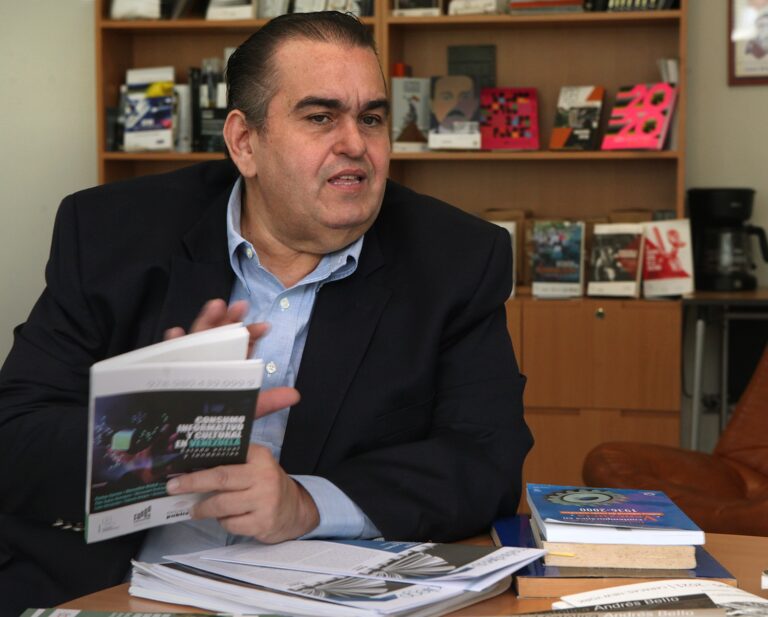According to a decree published in the official gazette, cable stations will have to broadcast President Hugo Chavez's "cadenas" programmes or face a fine or suspension.
(RSF/IFEX) – 12 January 2010 – Reporters Without Borders reacted with dismay as compulsory airing of President Hugo Chávez’s extremely lengthy speeches (cadenas) was extended for the first time to cable channels, meaning no Venezuelan TV viewer will be able to escape them in future.
The presidential programmes allowing the head of state to requisition unlimited airtime from all media for his live speeches, under Article 10 of the Law of Social Responsibility in Radio and Television (Resorte law adopted in 2004), was previously limited to terrestrial frequencies.
Under a little-noticed public decree published in the official journal on 22 December 2009, cable channels will now also be subjected to the same rule.
Public or private, all media with a minimum of 70% output at the national level will, under threat of a fine or even “official suspension”, be forced to link up to the frequency of the major state TV channel, Venezolana de Televisión (VTV), during the presidential “cadenas”. In addition to his “cadenas”, the president presents his own Sunday programme, “Aló Presidente”, on VTV.
“The Hugo Chávez government has taken yet another step towards monopolising public discussion and further gagging the voices of detractors, including that of the highly critical RCTV Internacional, which has been targeted since it supported the coup against Hugo Chávez of 11 April 2002,” the worldwide press freedom organisation said.
“The head of state’s seizure of media space has absolutely nothing to do with any move towards pluralism and quality news and information,” RSF added.
RCTV Internacional, which was removed from the terrestrial frequency spectrum on 27 May 2007, was able to resume broadcasting on cable in July 2008. Subsequently, the channel narrowly escaped a new suspension because it did not register itself as a “national broadcast producer”. Venezuela’s telecommunications regulator (CONATEL) had to back off from its position against RCTV in the absence of specific cable television legislation. The 22 December 2009 decree will now allow the government to force RCTV Internacional to accept the “cadenas”.
President Chávez waged a crusade against the opposition press during 2009 to gain control of the media landscape, closing 34 broadcast media outlets on 1 August, followed by the announced takeover of 29 further frequencies on the pretext of “developing community media.” The frequency of one of the closed media outlets, the privately-owned and still free AN Radio, was assigned to Venezuela’s National Assembly, which has been broadcasting on the radio station’s signal since 15 December.


